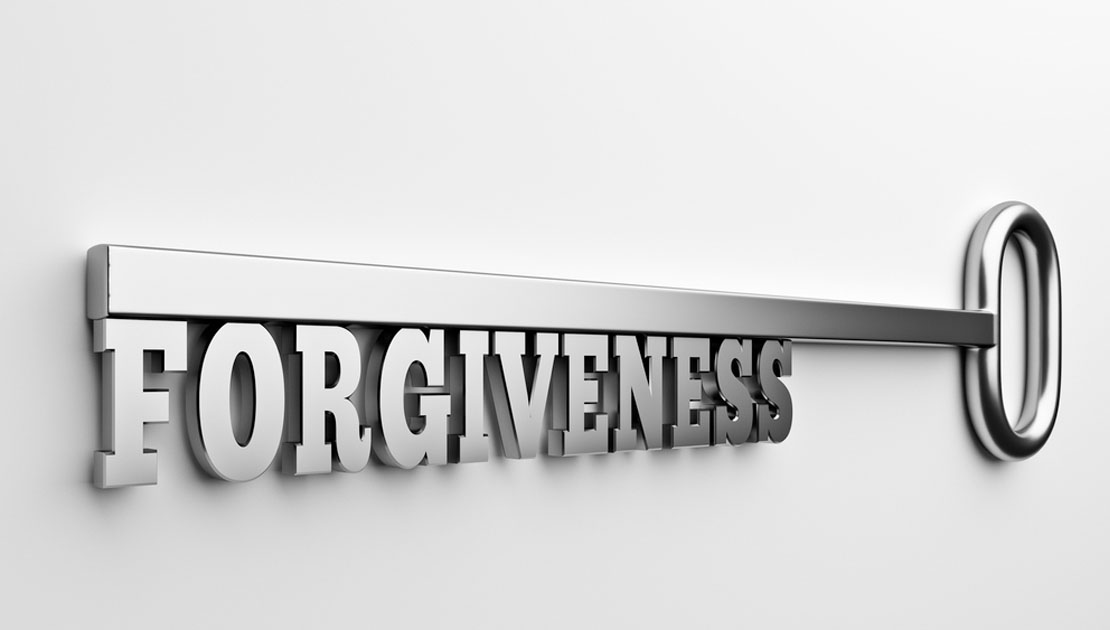The simple fact that we, as human beings, are fallible dictates that you and I are going to make mistakes. These mistakes can and often times hurt people around us, causing a rift in relationships that lead up, sometimes, to unwanted consequences. And so, we have all been there when someone does something that appears to be inconsiderate causing us to be hurt and leaving us wondering how to pick up the pieces and move on.
When the people around us, for example our children, spouses, friends or parents, hurt us, we may feel angry and unable to move past the incident. Such feelings, though natural and somewhat justified, are dangerous and harmful for us as much as, if not more than, those toward whom we are angry. That’s where forgiveness comes in.
Your mother just criticized your recent weight gain.
You were called “incompetent” due to an oversight at work.
Your family rejects you after converting to a different religion.
You found flirtatious texts on your husband’s phone.
Your best friend has been ignoring your calls.
Forgiveness can be a very important and empowering step on one’s journey toward healing. But how can you forgive someone who has betrayed your trust and hurt you in such a way? Forgiveness is not a privilege you are granting the person who hurt you. It’s something you are doing for yourself. Any step we can take to move past an incident that has hurt us moves us one step closer to healing that wound. Those of us who are unable to forgive are often times more anxious and more easily angered. Their relationship with others is negatively affected and their attitude and energy is often undesirable. More importantly, those who cannot forgive are embodying the opposite characteristic of the Most Forgiving, Allah.
Al-Ghafoor, the Most Forgiving, is one of the attributes of Allah that is mentioned over 70 times in the Qur’aan. Allah (subhanahu wa ta’ala) describes the believers as, “those who avoid major sins and acts of indecencies and when they are angry they forgive.” (42:37) He (subhanahu wa ta’ala) also says, “The reward of the evil is the evil thereof, but whosoever forgives and makes amends, his reward is due from Allah.” (42:40)
The importance of forgiving those who have wronged us is clearly emphasized throughout our Islamic tradition. Just as it is important to seek Allah’s (subhanahu wa ta’ala) forgiveness constantly, it is also essential to base our relationships with the people in our lives on mercy and forgiveness.
I will be the first to admit that forgiving somebody who has wronged us is difficult. Sometimes it feels like an uphill battle trying to think positively about them. However, consider this: a 2001 study[1] examined the emotional and physiological impact that thinking of hurtful memories versus considering empathic perspective-taking can have. The study revealed that unforgiving thoughts resulted in negative emotions and significantly higher heat rate and blood pressure. Forgiving thoughts prompted the participant to feel more control and lower physiological stress responses. Forgiving someone who hurt you is primarily for your own benefit and healing. It helps us to move past the painful incident and diminishes our sense of anxiety and stress. Consider the sense of relief and release you would feel.
My clients often fear that forgiving means excusing the behavior of the person at fault. There can still be an understanding that what happened was not okay and that the person is still accountable for what they did, both with you and with Allah (subhanahu wa ta’ala). Allah (subhanahu wa ta’ala) says, “On the Day when every person will be confronted with all the good he has done, and all the evil he has done, he will wish that there was a great distance between him and his evil.” (3:30) Forgiveness can happen simultaneously with this thought-process. One thing to keep in mind is that forgiveness allows you to be freed from the “control” of the person who hurt you. Once you acknowledge that what they did was wrong but that it no longer dictates your view of yourself or others, you are freed from these shackles.
You can see these benefits amplified in the example of our beloved Prophet (sala Allahu ‘alayhi wa salam) when he went to Ta’if to preach the message of Islam, they mocked and humiliated him. They threw rocks at him until he bled and had children make fun of him. No doubt they physically and emotionally abused him. Not too long after that incident, within hours if not minutes, Muhammad (sala Allahu ‘alayhi wa salam) was given the option to destroy the people of that city but instead he responded by supplicating to Allah (subhanahu wa ta’ala) saying, “O Allah, guide these people, because they did not know what they were doing.” (Saheeh Al-Bukhari). Instead of letting anger get the best of him, he decided to forgive them. Imagine how he felt after that supplication!
We know that there are people out there who would rather lose their lives than forgive those who’ve wronged them. Yet, we will never reach our inner peace without such forgiveness. Martin Luther King Jr. said, “Darkness cannot drive out darkness; only light can do that.” So, forgive others and live life for the present moment and an optimistic future, rather than the pains of the past.
- VanOyen, W.C., Ludwig, T.E., Vander Laan, K.L. (2001, March). Granting forgiveness or harboring grudges: Implications for emotion, physiology and health. Psychol Sci 12 (2), 117-23. ↑
Written by : Sarah Sultan, LPC, LMHC
Sarah Sultan is a licensed professional counselor who strives to empower her clients through achieving healthier, more fulfilling lives and relationships while reconnecting with Allah during the healing process. Sarah obtained a Master’s Degree in Mental Health Counseling and has practiced therapy for nearly 10 years. She is an instructor with Mishkah University, where she teaches a course about the intersections between Islam, psychology, and counseling. She is also a Research Fellow with Yaqeen Institute where she focuses her research on a variety of comprehensive and Islamically sound approaches to treating trauma from a spiritual, mental, emotional, and physical perspective.





